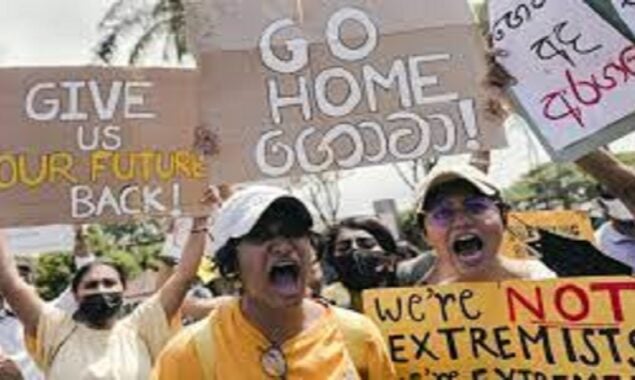
Sri Lanka’s ailing president will not resign, according to his government’s whip. In the midst of the country’s economic turmoil, public and political opponents have called on Gotabaya Rajapaksa to resign.
Long power outages and shortages of petrol, food, and other essential supplies have enraged residents for weeks. Almost all of his Cabinet ministers have resigned, and dozens of MPs have defected from his government as a result of popular outrage.
MPs from the opposition have also turned down his invitation to establish a national unity government, claiming that voters want the president and the entire government to go.
“As a responsible Government, we state President Gotabaya Rajapaksa would not resign from his job under any circumstances,” Chief Government Whip Johnston Fernando told legislators on Wednesday.
Following more protests, the departure of numerous government members, and the resignation of his Finance Minister, Mr. Rajapaksa repealed the contentious state of emergency restrictions on Tuesday night.
After protests outside his home on April 1, the President used the statute, which allows suspects to be detained without a warrant. But, in an apparent capitulation to outraged citizens, he lifted them on Tuesday. 41 MPs had left the president’s ruling coalition earlier that day in parliament to “represent themselves independently.” It’s still unclear what this means.
Sri Lanka is in the midst of its biggest economic crisis since its 1948 independence from the United Kingdom. The massively import-dependent South Asian nation no longer has sufficient dollar reserves to purchase basic necessities such as food, fuel for vehicles, or even electricity generation.
People have been experiencing up to 13-hour power outages, significant inflation, and food and essential commodities shortages. Protests raged around the country on Wednesday. Since January, nonviolent demonstrations have taken place in response to public outrage over the crisis.
However, in the last fortnight, the situation has worsened, with many more people flocking to the streets as power outages lasted 13 hours and petrol stations ran out of fuel.
“People are unable to purchase their daily rice, dhal, and other essentials. People are unable to board buses to travel to work or school “This week, a demonstrator told an International News Channel.
While most protests are peaceful, violent outbursts have occurred, including attacks on politicians’ residences and skirmishes between protestors and police.
In a statement made before the emergency measures were abolished on Tuesday, the UN Human Rights Council underlined its worry about them. The UN expressed concern about the limits aimed at “preventing or deterring people from lawfully voicing their grievances through public rallies,” citing instances of police violence.
“In Sri Lanka, the state’s ability to effectively tackle the economic crisis has been harmed by the march toward militarisation and the loss of institutional checks and balances,” it continued.
Read More News On
Catch all the International News, Breaking News Event and Latest News Updates on The BOL News
Download The BOL News App to get the Daily News Update & Follow us on Google News.




